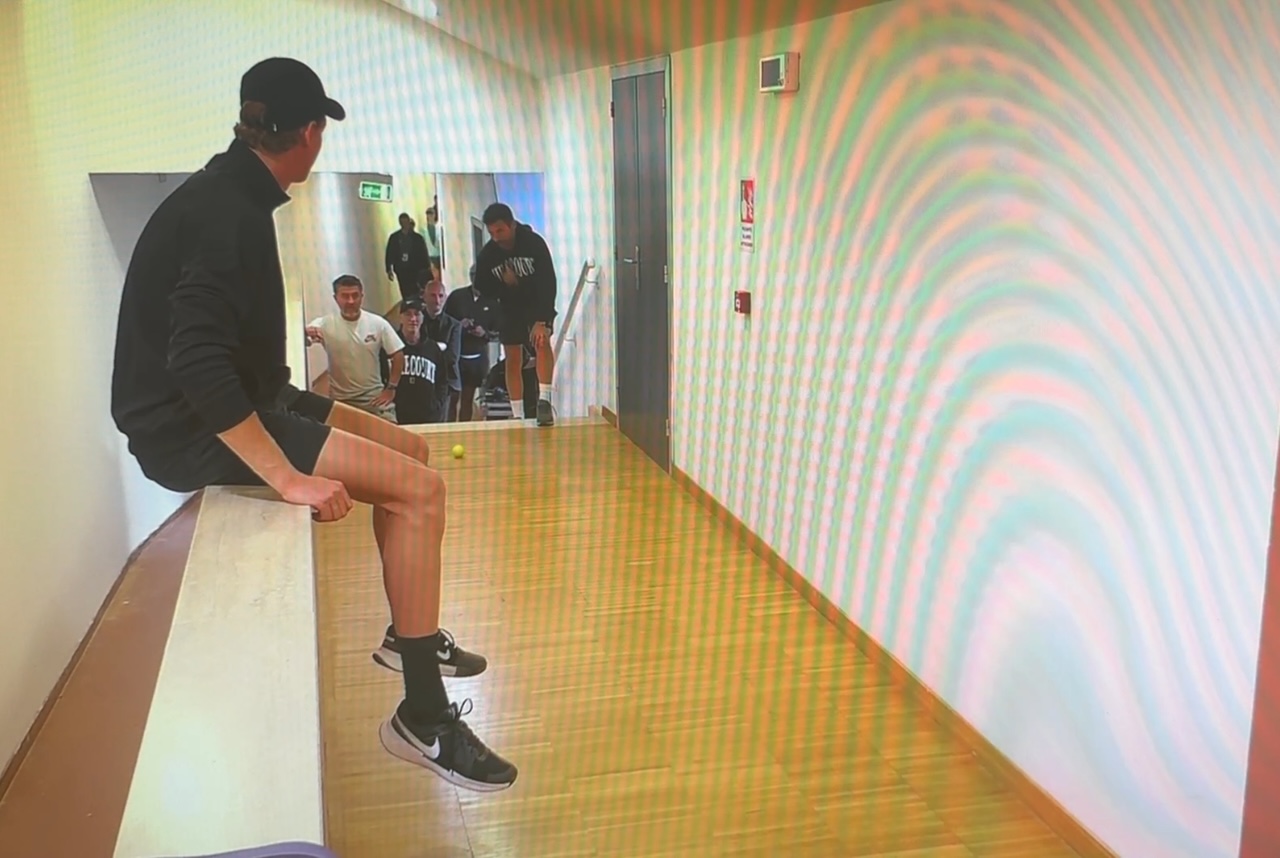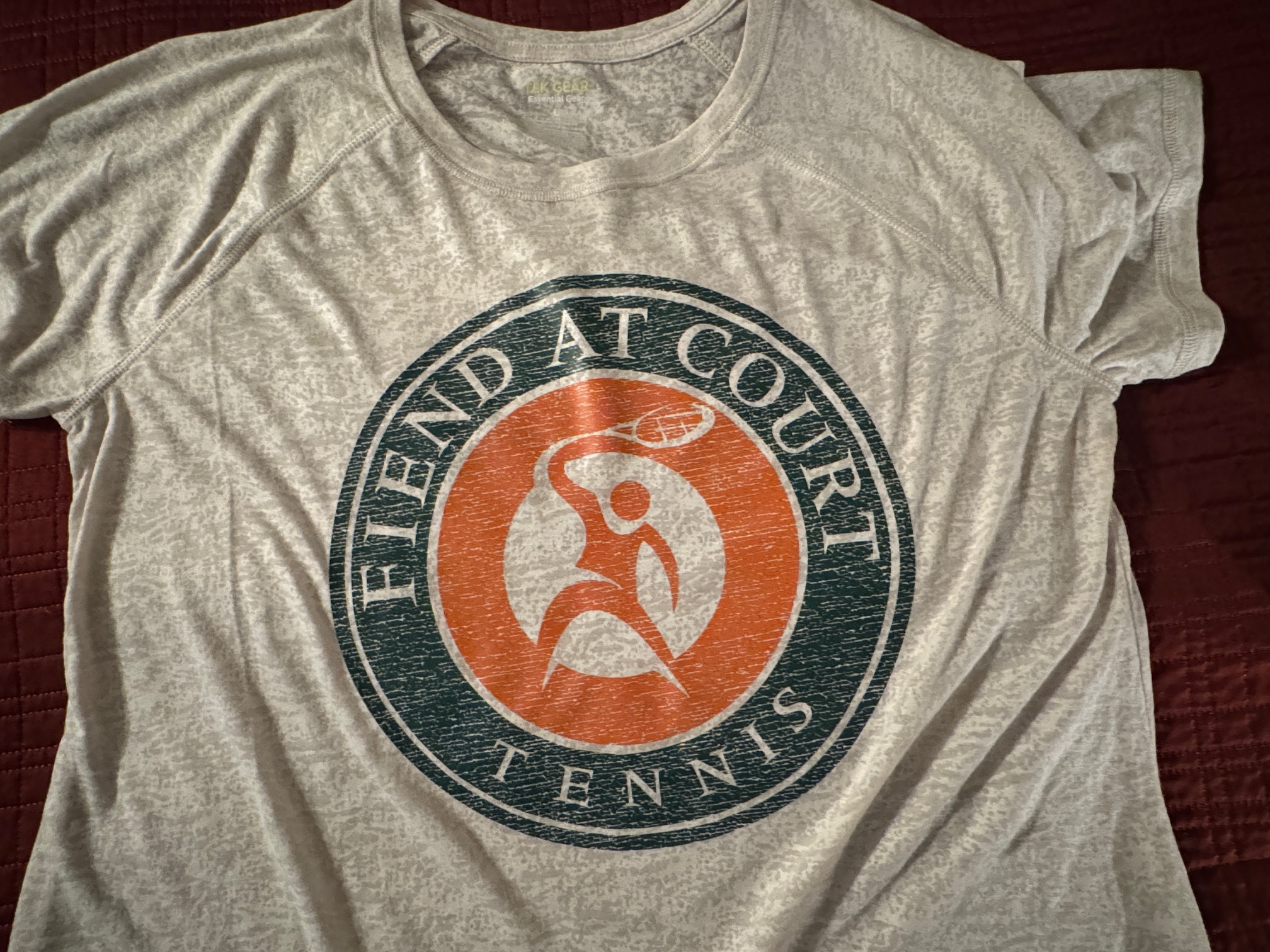Fiend at Court Unplugged
Someday I will tell the story of when I quit tennis forever. Today I want to focus on a tiny part of the story of when I came back to tennis. Specifically, how I slid down the slippery slope into the NTRP system. As previously mentioned in “My Days as an NTRP Sandbagging Bastard” I never had any desire to play NTRP rated tennis.
A large part of my attitude toward the NTRP system was rooted in the state of NTRP play as I was transitioning out of junior tennis. At that time, the NTRP system in the throes of the initial growing pains of a national roll out. It was apparent at the time that people had already figured out a way to game the system. You could say that abuse of the NTRP system is as old as the system itself.
Additionally, the perception from the junior players in my era was that the NTRP system was for adults who had never learned to play tennis properly growing up. Leagues were for people who wanted to play tennis but couldn’t actually play tennis.
To provide a little more color behind this perception, the year before I graduated from high school in 1985, USTA League Tennis was sponsored by Michelob Light. At the time, nothing said “over the hill” better than light beer. It gets better.
The following year in 1985, USTA league tennis switched sponsorship to Volvo. The ultimate family car. In fact, in conjunction with the sponsorship swap, the USTA ran a sweepstakes in which one lucky winner received a new station wagon. That’s right, a station wagon.
It was fine because league tennis was growing by leaps and bounds. It didn’t need the juniors, who were still systematically excluded with the minimum age restriction of 21. The aging out juniors simply were not interested in league tennis. It wasn’t for us.
When I returned to tennis 28 years later, it was through tournaments. That is when I made the discovery that somehow in the interim, NTRP play had jumped from league play into tournaments. In fact, NTRP tournaments were basically the only way to consistently get tournament matches. While my initial NTRP self-rate was induced by recruitment to a league team, the realization that I would inevitably be playing NTRP tournaments was a significant factor.
Essentially, I was forced into the NTRP system after coming to the realization that age-group senior open tennis really wasn’t a thing at the local level. In order to get matches, I had no other mechanism than NTRP play. It is simply where all the players were.
Some of the messaging that I have received, both through official and unofficial channels, is that the USTA believes that the new Adult Tournament structure coming in 2021 will ultimately benefit Senior Age Group tennis. I genuinely hope that is the case. For me that remains my preferred mode of play.
At the same time, I have come to appreciate the NTRP system and how it is essential for developing and fostering tennis for players at all levels. I believe that NTRP tournaments provide two vital elements in the tennis development ecosystem.
First, in “Life on the Border: Tennis Wastelands” I wrote about areas that do not have enough players to sustain leagues at some NTRP levels. For a player in those areas who get bumped up out of a viable level for league play in their area, it is a tennis death sentence. Without matches at the next competitive level, the player will never get bumped back down.
Options are limited. Those players can try to find a team in an out of town league that are willing to take those players on. It is a coordination nightmare for basically one match with a lot of travel overhead. Tournaments are a much more viable option for those players.
The other part that NTRP tournaments serve in the tennis ecosystem is developing and fostering a tournament culture. As I have observed before, there is a completely different mentality around tournaments than league play. I openly admit that I regard tournament culture as more competitively pure than the culture of leagues. The tournament mentality represents a diverse perspective on tennis that is essential to tennis communities.
Which brings me back full circle. Selfishly, I hope that the prediction that the new 2021 tournament initiatives will bring players back to age-group open tennis comes to fruition. At the same time, I am concerned that it will be at the expense of siphoning off players from the higher NTRP levels. In an ideal world, both age-group open tennis and NTRP level tournaments will survive and thrive.
One thing that I have probably not stated enough is that I recognize that those charged with figuring out what is best for tennis are facing a profoundly complex and challenging problem. I have a genuine appreciation of that fact.



